EU Markets in Crypto-Assets Regulation (MiCA) – Part 1: Crypto-Assets Classification & Crypto-Asset Services
Views: 3453
MiCA (Markets in Crypto-Assets Regulation) is the EU's comprehensive regulatory framework for governing the crypto-asset market, effective from December 30, 2024. In Vietnam, the government is developing a regulatory sandbox and plans to issue a resolution allowing the pilot of a crypto-asset exchange in March 2025. The article also introduces crypto-asset classifications under MiCA, legal requirements, and related services.
(1).png)
Introductory
Introduced by the European Commission as part of the Digital Finance Package, which includes other legislative proposals like the DLT Pilot Regime and DORA, Regulation (EU) 2023/1114 of 31 May 2023 on markets in crypto-assets (“MiCA” or “Markets in Crypto-Assets Regulation”) establishes a comprehensive and harmonized framework for regulating crypto-asset markets across the European Union (EU). By overseeing the issuance of crypto-assets and the provision of related services, MiCA sets the groundwork for a unified regulatory environment for crypto-assets in the EU. This regulation has been fully effective since 30 December 2024.
In Vietnam, the development of a legal framework to manage crypto-assets and digital currencies was emphasized by General Secretary Mr. To Lam at a meeting with the Central Policy and Strategy Committee on 24 February 2025. The General Secretary requested the National Assembly and Government agencies to institutionalize the management of this field, i.e. to research and apply a controlled “pilot” mechanism (sandbox) to establish a "trading floor" for crypto-assets and digital currencies related activities. On 05 March 2025, Deputy Minister of Finance Mr. Nguyen Duc Chi said that within March 2025, the Government will issue a resolution, allowing the pilot operation of a crypto-asset trading floor so that investors, organizations and individuals will soon have a safe-place to trade.
In this article, we introduce some key elements of the MiCA regime such as services related to Crypto Assets, licensing requirements for registering Crypto Asset Service Providers (CASPs) etc. so that Vietnamese investors can grasp relevant information and prepare to accompany with the construction of Vietnam’s legal framework on virtual assets, crypto assets which will be very soon to be introduced by the Vietnam Government.
Classifying and Regulating Crypto-Assets under MiCA
According to MiCA, a crypto asset is “a digital representation of value or rights which may be transferred and stored electronically, using distributed ledger technology or similar technology”. The proposed regulation goes on to provide definitions for the types of crypto assets that fall under its scope.
MiCA classifies crypto-assets into three main types, each subject to different regulatory requirements. The classification is based on whether the crypto-assets aim to stabilize their value by referencing other assets.
A stablecoin is a type of cryptocurrency designed to maintain a stable value by pegging its worth to a reference asset, such as a fiat currency (like the US dollar), a commodity (like gold), or another cryptocurrency. The primary goal of stablecoins is to reduce the price volatility commonly associated with cryptocurrencies like Bitcoin and Ethereum, making them more suitable for everyday transactions and as a store of value. The MiCA defines two types of stablecoins: EMT & ART.
1. Types of Crypto-Assets under MiCA
· E-money tokens (EMTs): These aim to stabilize their value by referencing only one official currency. Their function is similar to electronic money, acting as electronic surrogates for coins and banknotes, likely used for payments. Such stablecoins are primarily used as a means for payment and share similarities with the instruments defined as “e-money” under the Electronic Money Directive (e.g. e-HKD, e-CNY etc.). However, MiCA highlights some key differences between the two, such as the fact that e-money holders are “always provided with a claim on the electronic money institution and have a contractual right to redeem their electronic money at any moment against fiat currency that is legal tender at par value with that currency”.
· Asset-referenced tokens (ARTs): These aim to stabilize their value by referencing another value or right, or a combination thereof, including one or several official currencies. This covers crypto-assets, other than e-money tokens, whose value is backed by assets. Because of their stabilized value, ARTs can be used as means of payment to buy goods and services or as a store of value.
· Crypto-assets other than asset-referenced tokens and e-money tokens: This category includes a wide variety of crypto-assets, including utility tokens. MiCA defines utility tokes as “a type of crypto asset which is intended to provide digital access to a good or service, available on Distributed Ledger Technology, and that is only accepted by the issuer of that token”. The proposal points out utility tokens do not have financial purposes related to the operations of a digital platform and digital service, which differentiates it from other types of crypto assets, for example security tokens.
2. Regulatory Requirements
MiCA sets out different requirements for:
· Offerors and persons seeking admission to trading of crypto-assets other than asset-referenced tokens and e-money tokens.
· Issuers of asset-referenced tokens.
· Issuers of e-money tokens.
The applicable regulatory regime depends on the classification of the crypto-asset. Titles II, III, and IV of MiCA establish different regimes for the issuance and offering to the public of crypto-assets. Title V applies to any crypto-asset under MiCA.
Categories of Crypto-Asset Services under MiCA
MiCA outlines several services related to crypto-assets, each with specific requirements. Any person providing these services on a professional basis is considered a ‘crypto-asset service provider’ (CASP). Generally, MiCA specifies 10 (ten) distinct crypto-asset services, as follows:
1. Providing custody and administration of crypto-assets on behalf of clients: This involves the safekeeping or controlling of crypto-assets or the means of access to such crypto-assets (like private keys) on behalf of clients.
2. Operation of a trading platform for crypto-assets: This entails managing one or more multilateral systems that bring together multiple third-party buying and selling interests in crypto-assets, resulting in a contract.
3. Exchange of crypto-assets for funds: This involves concluding purchase or sale contracts concerning crypto-assets with clients for funds using proprietary capital. Providers must have a non-discriminatory commercial policy and a methodology for determining the price of crypto-assets.
4. Exchange of crypto-assets for other crypto-assets: This is similar to the exchange for funds but involves trading one crypto-asset for another. Requirements are similar to those for exchanging crypto-assets for funds, including a non-discriminatory commercial policy.
5. Execution of orders for crypto-assets on behalf of clients: This service requires providers to ensure they obtain the best possible result for their clients when executing orders, in line with a best execution policy.
6. Placing of crypto-assets: This involves marketing crypto-assets to potential purchasers on behalf of the offeror.
7. Reception and transmission of orders for crypto-assets on behalf of clients: This includes receiving orders from clients to purchase or sell crypto-assets and transmitting those orders to a third party for execution. The reception and transmission of orders for crypto-assets on behalf of clients is deemed equivalent to the reception and transmission of orders in relation to one or more financial instruments.
8. Providing advice on crypto-assets: This service involves offering personalized recommendations to clients regarding crypto-asset transactions or the use of crypto-asset services.
9. Providing portfolio management on crypto-assets: This involves managing portfolios of crypto-assets in accordance with mandates given by clients.
10. Providing transfer services for crypto-assets on behalf of clients: This includes providing services to transfer crypto-assets from one distributed ledger address or account to another on behalf of a natural or legal person.
General Requirements for Crypto-Asset Service Provider
Irrespective of the specific service provided, all Crypto-Asset Service Provider (“CASP”) must adhere to certain overarching requirements:
· Authorization: CASPs must be authorized in accordance with Article 59 of MiCA to provide crypto-asset services within the Union.
· Legal Person: CASPs must be a legal person or other undertaking that ensures equivalent protection for third-party interests.
· Compliance: CASPs must meet the conditions for their authorization at all times.
· Cross-Border Services: CASPs can provide services throughout the Union, either through establishment or the freedom to provide services, without needing a physical presence in a host Member State.
· Competent Authorities: CASPs must provide information to allow competent authorities to assess compliance of outsourced activities.
· Safeguarding client assets: CASPs should have adequate arrangements to safeguard clients’ ownership rights with respect to the crypto-assets they hold.
· Orderly wind-down: CASPs must have a plan for the orderly wind-down of their activities, ensuring minimal economic harm to clients.
· Minimum capital: CASPs must have the amount of permanent minimum capital requirements depending on the type of the crypto-asset services provided.
· Risk Management: CASPs need to put into effect mechanisms, systems, and procedures for risk assessment.
According to MiCA, a CASP must be authorized by competent authorities in an EU member state to operate within the Union. MiCA specifies that only legal entities with a registered office in a member state can offer crypto asset services.
Notably, authorization as a CASP will be valid throughout the entire EU. An authorized CASP providing cross-border services will not need a physical presence in the host member state. This reflects MiCA’s aim to offer CASPs similar benefits to those available to traditional financial firms with EU passports.
Meanwhile, companies based outside the EU but providing crypto-asset services to EU residents will be subject to the same obligations as EU-based CASPs. These obligations include acting honestly and in the best interest of clients, meeting prudential requirements, providing information to competent authorities, safeguarding clients’ funds, and identifying, managing, preventing, and disclosing conflicts of interest. The obligations also include specific requirements based on the types of crypto-asset services provided.
Another provision of MiCA states that the European Securities and Markets Authority (ESMA) shall establish a register of all CASPs. This register will be publicly available on ESMA’s website.
ALTAS’ Services in Vietnam
(i) Business Licensing Package: including Company Establishment, Investment Registration, and Post-Registration Compliance: We provide guidance on post-registration obligations, such as tax registration, social insurance registration, and Corporate Secretarial Services;
(ii) Operational/ Specialized Licenses: We assist with obtaining operational licenses for specific business activities and regulated industries such as manufacturing, trading, services, e-commerce, Healthcare, Educational or Food & Beverage (restaurants) etc.;
(iii) Tax & Accounting & Bookkeeping Services: We assist with all aspects of tax compliance, bookkeeping services, social insurance contributions, and compliance with labor regulations. We also assist with Tax Settlements and Tax Refund for businesses including negotiating with tax authorities and resolving any outstanding tax liabilities;
(iv) Data Protection: We assist with compliance with data protection regulations including drafting, reviewing Data Protection Impact Assessments (DPIAs), Data Processing/Transfer Agreement, Privacy Policies and necessary documentation required by the Personal Data Protection Decree (PDPD);
(v) Dispute Resolution including Litigation, Mediation, Arbitration; and
(vi) Legal Retainer Services upon Client’s demand.
Conclusion
The MiCA aims to regulate and harmonize the crypto-asset market within the European Union. In Vietnam, the Prime Minister has urged the National Assembly and the Government to promptly establish a legal framework for digital assets in May, 2025. Thus, Vietnamese investors should get ready to support the development of Vietnam’s legal framework for crypto assets, which will soon be introduced by the Vietnamese Government.
ALTAS LAW is committed to supporting investors and businesses during this volatile period. Please contact Partner Chris Luong at chris.luong@altas.vn if you need further information or assistance.
Copyright © 2025 ALTAS LAW. All rights reserved. Ownership: This documentation and content (Content) is a proprietary resource owned exclusively by ALTAS LAW (meaning ALTAS LAW, ALTAS CORP and its member firms). Use of this Content does not of itself create a contractual relationship, nor any attorney/client relationship, between ALTAS LAW and any person. Disclaimers: The Content provided is for informational purposes only and may not reflect the latest legal or regulatory developments. Summaries of laws, regulations, and practices are subject to change. This Content does not constitute legal or professional advice for any specific situation and should not be relied upon as a substitute for reviewing and complying with applicable laws, rules, regulations, or official forms. Always seek legal counsel before making any decisions or taking any action based on this Content. ALTAS LAW, along with its editors and contributing authors, make no guarantees regarding the accuracy of the Content and explicitly disclaim any liability for any consequences resulting from actions taken, allowed, or omitted, whether fully or partially based on any part of the Content. The Content may include links to external websites, and external sites may also link to it. ALTAS LAW is not responsible for the content or functionality of any such external websites and disclaims all liability for any issues arising from their content or operation. Please note: Past results do not guarantee similar outcomes.
Written: Luong Van Chuong - Partner Lawyer at ALTAS Law & Nguyen Tran Ngoc Thach - Legal Senior Assistant
Date: 06/03/2025








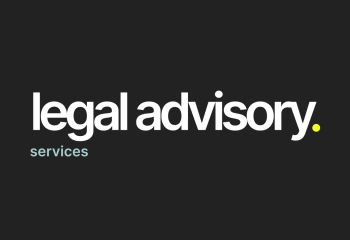
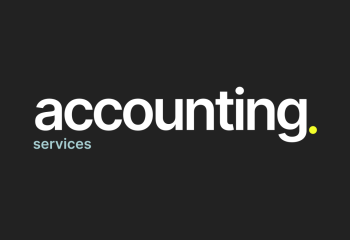
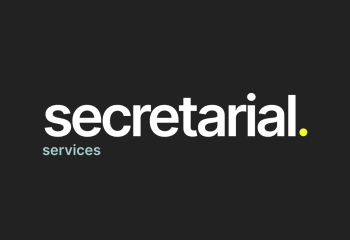
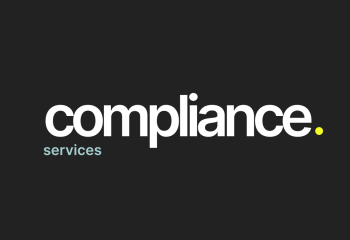


(1).png)

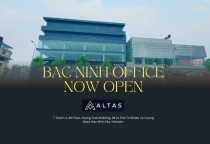









![?️ [ALTAS TALK IS COMEBACK | SERIES: “TAX MATTERS 2025”] ?️ [ALTAS TALK IS COMEBACK | SERIES: “TAX MATTERS 2025”]](thumbs/210x144x1/upload/news/altas-talkintro-7705.png)



